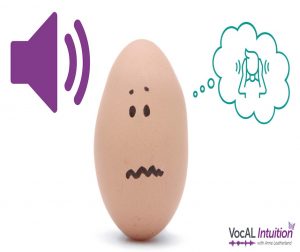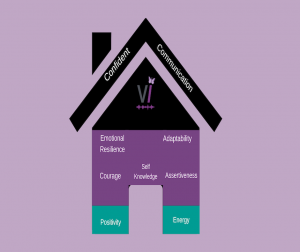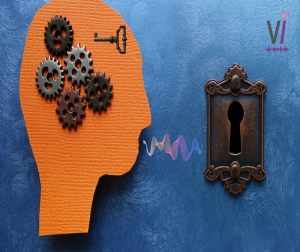
Have you ever thought or said, “I don’t like my voice,” and let that stop you from speaking or singing in public? If so, you’re not alone. If not, you might still find some insights here or something to pass on. Let’s explore why we often dislike our voices, how this can hold us back, and what we can do about it.
Why We Dislike Our Own Voices
We’ve all been there: we hear ourselves on a recording and cringe. “No, I don’t sound like that,” we think. “How can that be me?” This reaction is quite normal, and it all comes down to perception. We don’t hear ourselves as others do or as recording equipment captures us. Additionally, the recorded files are often compressed, changing the sound quality.
The Science Behind It
Brace yourself for a bit of science. We hear ourselves from the inside as well as the outside. Sound waves from our vocal cords travel through the air and into our ears, but they also travel through our body’s bones and soft tissues.
Here’s how it works: vibrations from our vocal cords travel through the eardrum and middle ear to the cochlea in the inner ear. The cochlea’s fluid-filled detectors transmit signals to the brain, which processes these sounds. Because sound travels through the air and our bones and tissues, we hear a warmer, deeper version of our voice. This is why recordings, which capture only the air-conducted sound, sound different to us.
The Role of Perception
Our perception of our voice is also influenced by what people have said about it. Comments from family, friends, or colleagues can stick with us, shaping our subconscious programming. We might think our voice is too loud, whiney, strident, or quiet. These judgments can make us feel less confident about our voices and, by extension, about ourselves.
Microphone and Acoustic Effects
Microphone quality and technique also affect how we sound in recordings. Different microphones have different frequency responses, and how we use them can alter our voice’s recorded quality. Additionally, the room’s acoustic properties can influence how we perceive our voice. Large, echoey spaces can make our voice sound different from small, soundproofed rooms.
Embracing Your Voice
Monitor and Record: Regularly record your voice and listen back. Notice the changes as you practice and improve your vocal skills.
Seek Feedback: Ask a skilled listener, such as a voice coach, to provide feedback. Their insights can help you understand how others perceive your voice and what you can improve.
Positive Self-Talk: Our thoughts and emotions come through in our voice. Combat negative self-talk with positive affirmations. Remind yourself that your voice is unique and valuable.
Build Your Skills: You can change and improve your voice with practice. Focus on vocal techniques that enhance clarity, warmth, expression and resonance.
Acceptance and Adaptation: Accept your voice as it is while recognising that you can adapt it for different situations. Your voice is part of your identity, and you can learn to use it effectively in various contexts.
In Conclusion
Disliking your voice is a common experience, rooted in how we hear ourselves differently than others hear us. By understanding this and working on our vocal skills and self-perception, we can learn to embrace and love our voices. Remember, your voice is unique and a crucial part of who you are. With practice and positive self-talk, you can transform how you feel about your voice and how you use it to communicate.
If you’d like to ask any questions or follow up on these ideas do get in touch. You can hear my podcast on this topic here, or join the conversation on our Facebook group, the Be Truly Heard Forum, and share your experiences and insights. Let’s continue to explore and empower our voices together.



